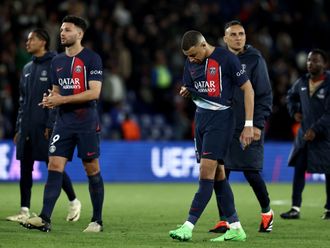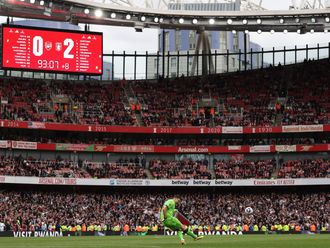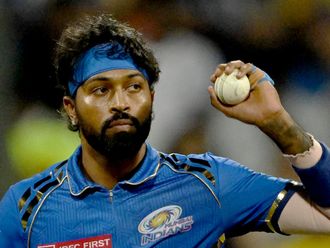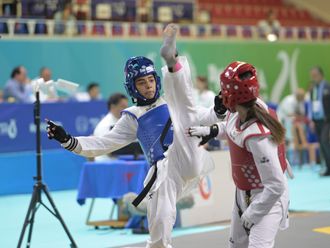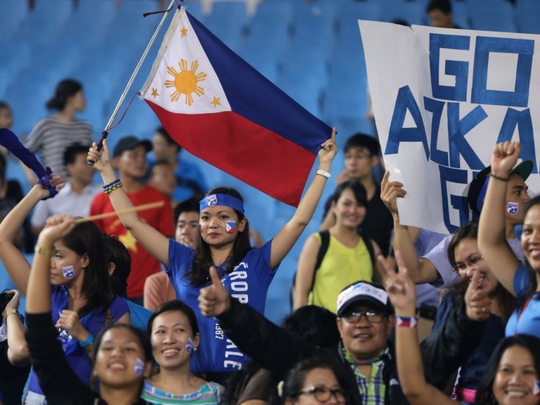
Dubai: Philippines qualifying for the Asian Cup for the first time and getting the first Filipino into the Premier League could spark a second soccer revolution in the boxing and basketball-mad archipelago, according to coach Thomas Dooley.
The Azkals (Street Dogs) only need to avoid defeat at home to Tajikistan on March 27 to make it into the UAE-hosted competition next January, and goalkeeper Neil Etheridge is just 11 games away from promotion to the English top flight with Malaysian-owned Cardiff City.
If both happen, it would provide a much-needed boost for football in the South East Asian oasis, at a time when the country’s new domestic league is struggling.
Meralco Manila and Ilocos United have both folded ahead of the league’s second season, which kicked-off on March 3, seeing the format reduce from eight teams to six.
Football in the Philippines – where the best result is a Far East Asian Games win in 1913 - had enjoyed something of a renaissance after the 2010 Suzuki Cup, where they reached the semis for the first time thanks to the mass-scale repatriation of players of Filipino descent from Europe.
However, after failing to push on and win tournaments like the Challenge Cup - where they finished second in 2014 to miss qualifying for the 2015 Asian Cup - the novelty wore off, despite their best ever attempt at World Cup qualification, reaching the second round in 2017 and hitting their best ever ranking of 120th in the world in 2016.
The double-joy of top-flight qualifications for team and player however, would restore interest and, hopefully, get the government on board, says Dooley, whose side are now 123rd in the world, two positions better than Tajikistan.
“The win or draw against Tajikistan would be the biggest success in the history of Philippine football,” said the German-born former USA captain; who much like the majority of his players - who are also of mixed-heritage - knows what it takes to embed an alien sport into a different culture, having represented his father’s native America at World Cup 1994 and 1998.
“An idol playing in the Premier League who worked his way up to the highest level would also be another milestone and stimulus for our younger generation.
“But we could have 11 players playing in the best leagues in the world and if the media here aren’t interested in supporting football then it will be almost impossible to succeed.
“If there is no TV deal or public visibility, no company is willing to spend money because they won’t get much in return,” he said of the league’s decline.
“I hope we will qualify and I hope Filipino TV is willing to negotiate a great deal with Philippines football, so the clubs and national team are all over the cities. People need to see football and talk about it to make it big.
“The drop back has had nothing to do with the national team’s performance,” added the former Kaiserslauten, Leverkusen and Schalke defensive midfielder, who has managed the Azkals since 2014.
“In fact we’ve broken multiple records since I took over, beating Indonesia for the first time in 80 years, drawing against Thailand for the first time in 40 years, getting our biggest points haul in World Cup qualification by beating Bahrain, North Korea and Yemen, despite a tough group and the worst travel schedule; an incredible 1-0 defeat to Uzbekistan, who were World No.65, despite being down to 10-men for 80 minutes, and beating a team ahead of us in the rankings away from home for the first time in Kyrgyzstan and Tajikistan.
“This country has huge potential,” added Dooley. “I compare it with Argentina and Brazil. The percentage of kids in the country is unbelievable and the parents and kids need to understand that there is huge potential to succeed in life. They can create a better life for themselves and their families,” he said of the 100-million-strong population, where almost a quarter live below the poverty line and over half are under the age of 24.
“An important part would be if we could get the government here to buy into the whole idea of pushing football in this country. Kids would learn important things like respect, responsibility and life-long social skills.
“If all those building blocks came together, we could build another small powerhouse.”
Of the Tajikistan game, he added: “If we think it’s a done deal because we beat them in Tajikistan and haven’t lost a game yet in the group, it will be dangerous.
“Tajikistan are strong, have good offensive players, never give up and are hard-working. We have great respect for them but also for ourselves.
“We need to play to win, like we always do and we need to be 100 per cent focused to play our game.”


